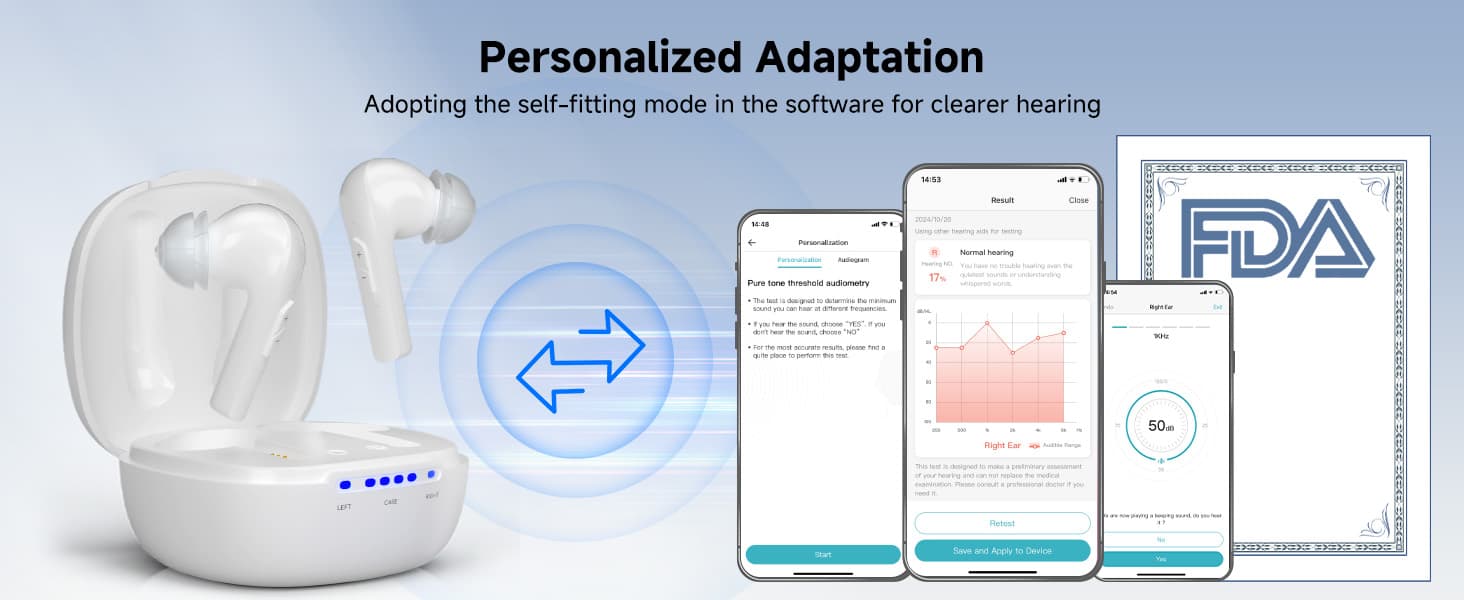Blog Detail

Meniere's Disease: An Inner-Ear Storm That Affects Hearing Health
- Amy
- Nov 14, 2024
- 0 Comments
Have you ever had a sudden sensation of skyrocketing and buzzing in your ears, accompanied by nausea and vomiting? Have you noticed a sudden loss of hearing or even tinnitus? If you have experienced any of the above, then you may need to be alert to the possibility of Meniere's disease.
Meniere's disease is also known as ‘endolymphatic hydrops idiopathic syndrome’. In layman's terms, this means that Meniere's disease is a type of endolymphatic hydrops, where an abnormally large amount of a fluid called endolymph collects in the inner ear, producing a series of recurring symptoms. Meniere's disease can occur at any age, with a high incidence in adults aged 40 - 60.
Causes may include circulation problems, viral infections, allergies, autoimmune reactions, migraines, and the possibility of a genetic link.
Some cases of Meniere's disease occur in response to certain events and situations, sometimes called triggers or precipitants, which set off an acute attack. These triggers include stress, overwork, fatigue, emotional distress, additional illnesses, stress changes, certain foods, and too much salt in the diet.

During an early episode of Meniere's disease, symptoms include:
-Spontaneous, intense vertigo
-Fluctuating hearing loss
-Fullness of the ears (auditory fullness) i.e. a feeling of tightness and fullness in the ears and/or tinnitus
In addition to the main symptoms listed above, an attack may also include:
-Anxiety, fear
-Diarrhoea
-Blurred vision or eye twitching
-Nausea, vomiting
-Cold sweats, palpitations or rapid pulse
-Trembling
An attack is usually followed by a period of extreme fatigue or exhaustion, which prompts the need for several hours of sleep.
During this time between attacks, some people are asymptomatic and others are symptomatic.
A number of symptoms have been reported after and between episodes:
-Anger, anxiety, fear, worry
-Changes in appetite
-Clumsiness
-Difficulty concentrating, inattention, tendency to look for words
-Diarrhoea
-Fatigue, weakness, drowsiness
-Headaches, feeling of heaviness in the head
-Dizziness (fuzzy)
-Loss of self-confidence and self-reliance
-Nausea, motion sickness
-Neck pain or stiff neck
-Palpitations or rapid pulse, cold sweats
-Voice distortion, sensitivity
-Unsteadiness (sudden falls, stumbling or tripping, difficulty turning or walking in poorly lit areas, tendency to look down or feel for stable support)
-Difficulty with vision (blurring, jumping, depth perception, increased glare, focusing, viewing movement; difficulty seeing through lenses such as binoculars or cameras)
-Vomiting

Late-onset Meniere's disease refers to a range of symptoms rather than a point in time. Hearing loss is more pronounced and less likely to fluctuate. Tinnitus may be stronger and more persistent. There may be difficulty walking in the dark and occasional sudden loss of balance. Sometimes episodes of falls of vestibular origin occur at this stage of Meniere's disease and are characterised by sudden brief postural instability without loss of consciousness. Some late symptoms occur with fatigue in low-light conditions or become problematic when exposed to visual stimuli.
Symptom Duration and Frequency of Episodes: Symptom episodes last from 20 minutes to 24 hours. They can occur at a frequency of multiple episodes per week; they can also occur at weekly, monthly, or even yearly intervals. The unpredictable nature of the disease makes it challenging to manage the disease in patients.
How can we prevent and treat Meniere's disease ourselves?
There is no complete cure for Meniere's disease, but it can be prevented and treated in the following ways:
Lifestyle modification: avoid overwork, stress and sleep deprivation, and maintain a regular routine.
Dietary control: Limit salt intake and avoid alcohol and caffeine.
Drug treatment: anti-dizziness and anti-emetic drugs, diuretics, vasodilators, etc. can be used for treatment.
Surgery: Surgery, such as endolymphatic decompression, may be considered for patients who do not respond well to medication.
Some patients with Meniere's disease may benefit from medical procedures that do not involve surgery, such as:
-Rehabilitation. Vestibular rehabilitation may be able to improve your balance if you experience balance problems before or after a vertigo attack.

-OTC Hearing aids
Wearing a hearing aid in the ear with Meniere's disease may improve your hearing.Hearingsense 1 Bluetooth self-fitting hearing aid scientifically assesses your hearing loss through an APP and uses a digital chip to provide you with a perfect hearing solution.
A diagnosis of Meniere's disease needs to be made by a specialised ear, nose and throat (ENT) doctor. If you experience any of these symptoms, you should seek medical attention to avoid delays that could lead to permanent hearing damage.
Maintaining your hearing health starts with prevention!
Have regular hearing checkups, especially for those with a family history of hearing impairment, and wear the right choice of hearing aids.
Avoid prolonged exposure to high noise levels and wear earplugs or earmuffs to protect your hearing.
Maintain good living habits, avoid smoking, alcoholism and other bad habits.


Comments (0)